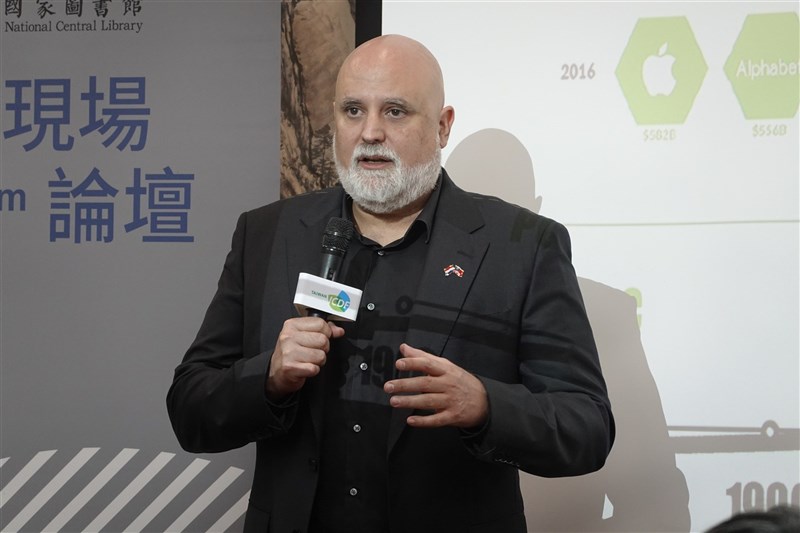
Taipei, Aug. 28 (CNA) A professor from Denmark specialized in legal aspects of emerging technologies, including Artificial Intelligence (AI), highlighted the importance of protecting patients' privacy in the age of "smart health care" at a forum in Taipei Thursday.
Marcelo Corrales Compagnucci, an associate professor at the University of Copenhagen's Center for Advanced Studies in Bioscience Innovation Law, made the remarks during the forum organized by the TaiwanICDF, a government-funded foreign aid agency.
In his keynote address titled "Building Ethical and Trustworthy AI for the Future of Smart Healthcare," Corrales said public healthcare facilities around the world have been taking advantage of the use of AI and machine learning to enhance healthcare services.
However, such practices and the use of popular mobile applications, such as menstrual tracking apps, are causing concerns over users/patients' privacy violation issues, he said.
For example, he said, in 2015, Google's AI firm DeepMind was given the personal records of 1.6 million patients at the Royal Free London NHS Foundation Trust, leading to public concerns about the use of private health data by tech firms.
"Now the problem was consent and how the data was used," he said, because "many of these patients were not asked for consent."
"The key lessons learned here are that AI in health must be built on transparency and respect for autonomy," he said.
"Patients need to be informed and systems must ensure a lawful basis -- consent or another valid ground -- not just assume data can be reused," he added.
Corrales cited the EU's trustworthy AI guidelines, which focus on several key requirements for AI systems such as human agency and oversight, technical robustness and safety, privacy and data governance, transparency, and accountability, as an example of the requirements for AI being lawful and ethical.
Corrales made the address during the second edition of the Development Focus Forum organized by the TaiwanICDF.
Speaking during the opening of the half-day forum, Peifen Hsieh (謝佩芬), deputy head of TaiwanICDF, said smart health care is one major part of the Diplomatic Allies Prosperity Project (榮邦計劃) launched by Foreign Minister Lin Chia-lung (林佳龍) in May 2024 to deepen substantive relations with allies and like-minded countries.
Taiwan is now helping its South American ally, Paraguay, and Somaliland in Africa to build a "Health Information System," Hsieh said.
Hsieh said the forum is meant to serve as a platform, aiming at fostering dialogue between academia and medical practitioners, to bolster exchanges between them and seek to enhance smart health care and international cooperation.
- Cross-Strait
Former Legislative Speaker Su Jia-chyuan named SEF chairman
01/13/2026 09:45 PM - Business
Tax revenue misses 2025 target due to U.S. tariffs, credit controls: MOF
01/13/2026 09:33 PM - Politics
Lai thanks Canada for supporting peace in Taiwan Strait
01/13/2026 09:07 PM - Society
Ministry defends HSR extension to Yilan amid calls to halt project
01/13/2026 09:04 PM - Business
TWSE-listed firms report highest-ever sales as AI boosts tech sector
01/13/2026 08:43 PM